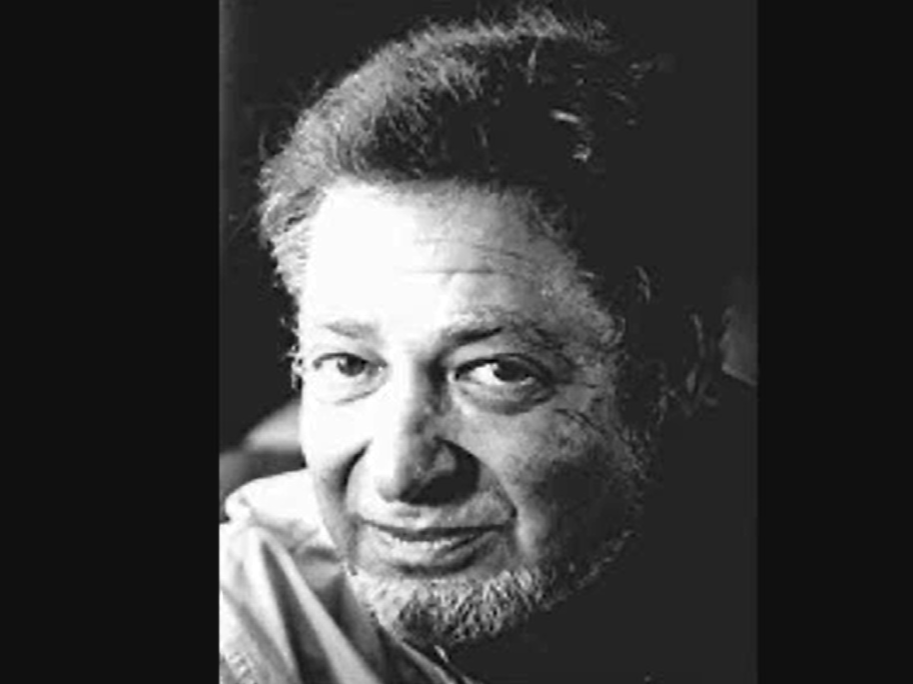29 August 2025
The following tribute is by Tom Hickey, a longstanding member of BRICUP who worked on Palestine solidarity with Steven from the early years of the Committee’s operation. He is a former member of the UCU National Executive Committee, and played a significant role in winning the union’s formal support for the BDS movement, after a protracted debate over a five-year period, including support for the academic boycott of Israeli institutions.
14 July 2025
Between Molecules and Meanings – Steven Rose, an Obituary
Neurobiologist, Professor of Biology at the Open University, Marxist, educationalist, anti-Zionist Jew, Palestine activist, prolific writer of popular science texts, and broadcaster, Steven Rose has died at the age of 87.
Born into an Orthodox Jewish family in North London, where Jews were under continual threat from organised, antisemitic gangs, Steven won a scholarship to study natural science at Cambridge. His research subsequently developed during five years at Imperial College before he took up a position at the Open University to develop a department of Life Sciences.
Steven was a passionately committed socialist for whom there was no unbridgeable gulf between science and politics. There was rather an obligation on scientists to register and respond to the manner and degree to which the demands of the capitalist market and the incorporation of the universities distorted research and hampered the application of key discoveries. Equally, political activists had an obligation to ground their understanding on the discoveries of the natural sciences in relation to the biological characteristics of the human animals that made their moral judgements, political visions and utopian ambitions possible, and which simultaneously constrained and enabled their willed intention and its ensuing activity.
Steven’s scientific research was focussed on the operation of the brain, and particularly on the nature and causes of memory and of human consciousness. Grounding his arguments in the experimental and model-building practices of biochemistry, he argued against dualist accounts of there being physical events on the one hand and intentional acts on the other, and in favour of a unified system of understanding – for him, between molecules and meanings there was no unbridgeable gulf. In the words of his The Making of Memory: from Molecules to Mind (1992), “… the world is a unity.”
This theme was maintained throughout his work. In The 21st Century Brain: Explaining, Mending and Manipulating the Mind (2005), he took up the question of the relationship between the brain and the mind, and in particular the claim that assertions about Mind (and thus assertions about justice and ethical goodness, etc.) were beyond the boundaries of scientific inquiry. He argued against such dualism and neurological reductionism. In Genes, Cells and Brains: the Promethian Promises of the New Biology (2012), authored jointly with his wife Hilary Rose, he argued against both molecular reductionism of the dominant strain of the Life Sciences in the c.21st, and against those who would claim that humans are uniquely free to transcend the limits and possibilities of their evolutionary inheritance.
All of this work was a form of political engagement in the sense that the implications of the argument had profound effects on our understanding of the nature of politics in general, and what human liberation might mean in particular. Yet a more explicit political engagement was also demanded by such an understanding. That led him into intense debates with biological determinists such as Edward Wilson, whose Sociobiology: the New
Synthesis (1975) was used as a pseudo-scientific justification for racist and sexist discrimination, and with Richard Dawkins whose evolutionary biology as presented in The Selfish Gene (1976) focussed on the role of genes rather that culturally adaptive behaviour to explain human activity and social structures. In 1984, he was one of the co-authors of the collection, Not in Our Genes: Biology, Ideology and Human Nature.
The work and its obligations also led him to strive for a wider understanding of the politics of science. He became a recognisable voice on radio and on TV, not least because of the rarity of voices from the Left. For over a decade, he became a regular, though not frequent, contributor to the Marxism Festival. His talks, always to some of the largest meetings, were amongst the most popular events at the Festival in those years.
In a joint essay with Hilary in their edited collection The Political Economy of Science: Ideology in/of Natural Sciences (1976), they had argued that , “The capitalist mode of production requires continuous innovation … It is the business of natural science to aid in this process of innovation … continuously invading and transforming all areas of human existence.” This drive to transform a popular misunderstanding of the nature of scientific inquiry and its relationship to the capitalist economy provoked the foundation, along with Hilary, of the British Society for Social Responsibility in Science.
His explicit political activity was not restricted to the relationship between science and politics, however. Refusing to turn his eyes away from the on-going, brutal and racist colonisation of Palestine, he and Hilary also responded to the call from the Palestinian Campaign for the Academic and Cultural Boycott of Israel (PACBI). They became founding members of the British Committee for the Universities of Palestine (BRICUP), and spoke at union fringe meetings and on campuses about the ethical imperative of boycotting Israeli academic institutions, all of which were and are complicit in the occupation and ‘ethnic cleansing’ of Palestine, and the systematic discrimination against Palestinian Arabs in Israel, in the ‘Occupied Territories’, and those in exile.
Steven’s death is, first and foremost, an immense loss to his family and close friends. Yet it is also an immense loss to the movement for justice in Palestine, to the socialist movement, and to the scientific community whose need for rational reflection on the implications of their discoveries, and the associated responsibilities, has never been greater.
Steven Rose: neurobiologist, Marxist, Palestine advocate; b. 4th July 1938, d. 9th July 2025.
He is survived by his wife, his two children, his six grandchildren and his brother.













